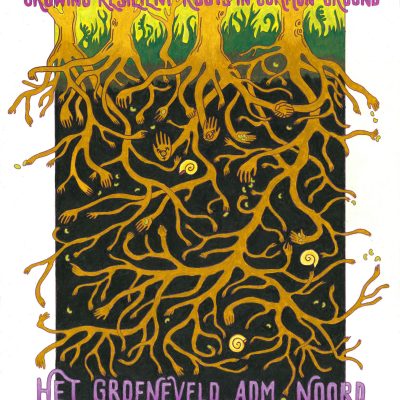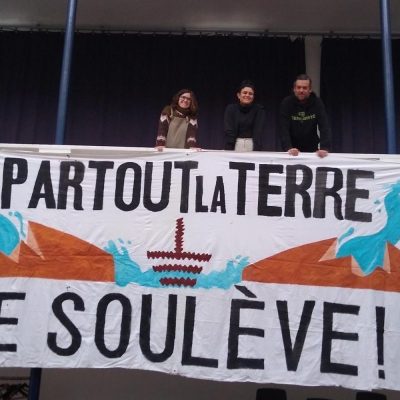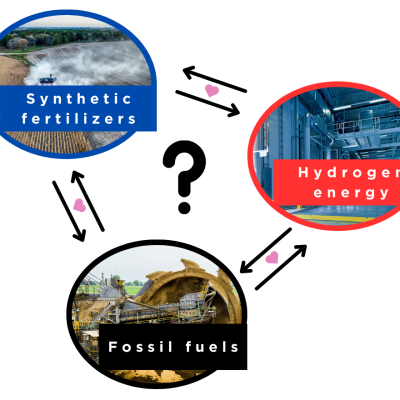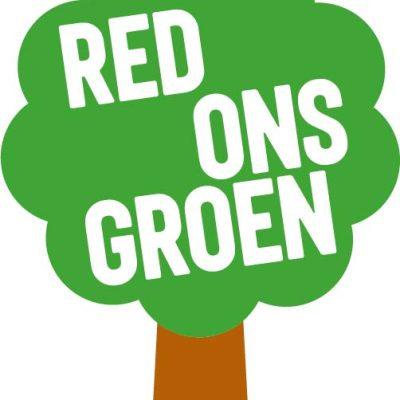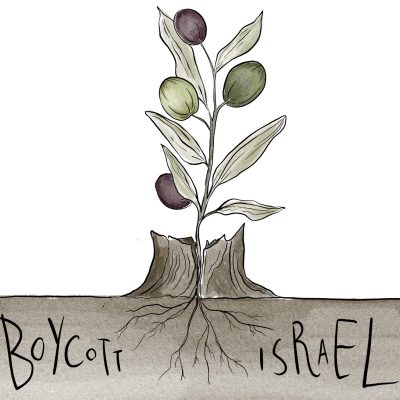With a globally rising urban population1, how to feed the cities has become of increasing concern. The question of how to feed a larger amount of people, however, often leads to technocratic solutions that speak the language of the UN Food and Agriculture Organization’s (FAO) Food Security Discourse (BOX 1) and is most often answered by large-scale, fossil-fuelled food production systems. The COVID-19 pandemic can also be connected to industrial agriculture, which you can read more about here. The industrial food system has enabled and been enabled by, the progression of capitalism, and a rural/urban dichotomy of food production has emerged2,3. This means that cities like Amsterdam cannot provide food for themselves, but rely heavily on rural areas for their food supplies.
Therefore, nowadays, we are finding ourselves in cities where urban food consumers are separated (physically and conceptually speaking!) from the people that grow their food and the natural environment that supports food production. In other words: it seems we have arrived at a food system that to most appears to be faceless and placeless, which becomes apparent in the majority of grocery stores one can step foot into. Here we find food having traveled far from over-exploited countries in the Global South as well as from Southern Europe with no recognition of the conditions under which this food has been produced. At the same time, the Netherlands, being known as one of the largest vegetable producers globally, cheaply exports locally, industrially grown produce to the rest of the world. From a food security perspective, this is not a problem, and in the agenda of the WTO (World Trade Organization) it might even be desirable: food is a globally tradeable commodity and food security is measured by the ability to purchase food products – even if this means providing citizens with food imported from halfway around the globe.
The Case of the Lutkemeerpolder
The absurdity of this becomes especially clear when looking at the case of the Lutkemeerpolder and the Boterbloemfarm. Being one of the last fertile, organically certified soils in Amsterdam their existence is being threatened by the construction of a distribution center on their land (more info here). Last month some of us participated in an action trying to prevent the starting of construction on the Polder which is now fully in progress (you can read our reflection on the action here).
Using land for farming is less profitable than using it as a construction ground for industry or real estate and so as a consequence of the capitalist agenda of urban planning, peri-urban farmland is increasingly covered in concrete for construction5. But the polder is appreciated much more than solely for its monetary value, as it also provides intrinsic values, such as an opportunity for people to experience nature and its tranquillity, as well as a place to be social or to exercise. Its presence also helps to support biodiversity in the area and peri-urban spaces more healthy and resilient6. It is more than ‘just’ a remaining fertile piece of land in the outskirts of Amsterdam, it is a place that provides the inhabitants of Amsterdam with healthy and locally grown food, and therefore goes beyond simply being a contributor to their food security. As a response to the technocratic approach of food security, the Food Sovereignty movement was called into life by peasants in the Global South who were protesting the commodification of their land, labour and food under WTO agreements. Food Sovereignty (1) focuses on food for people, (2) values food providers, (3) localizes food systems, (4) places control in local hands, (5) builds knowledge and skills, (6) works with nature7. While the term ‘Food Sovereignty’ is most commonly used we will continue here by using the term food autonomy instead of food sovereignty, and information on why we chose to do so can be found in BOX 2.
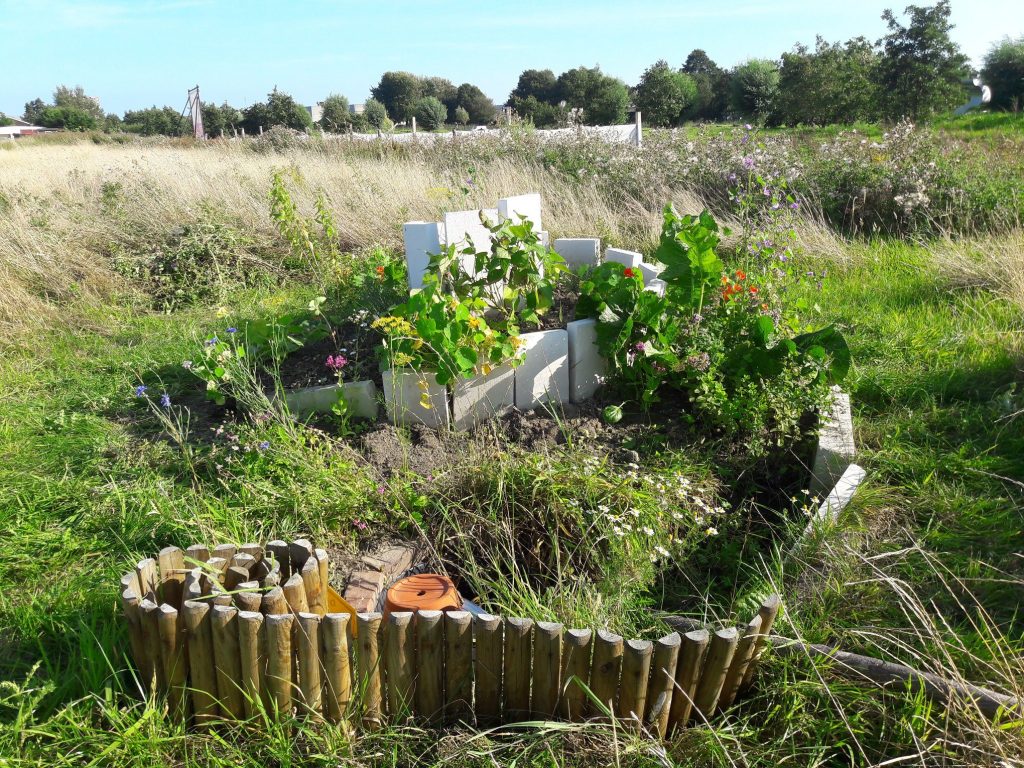
In the words of La Via Campesina: ‘Food [Autonomy] is not a simple set of technical solutions or a formula which can be applied – it is instead a ‘process in action’ – an invitation to citizens to exercise our capacity to organize ourselves and improve our conditions and societies together.’ 8 This ‘process in action’ could be witnessed at the Tuinen van Lutkemeer, the citizen initiative Behoud Lutkemeer established in March 2019. It was a lived experience for locals from different backgrounds to reclaim their right to grow food locally for their own consumption, exchange knowledge on food growing, and doing so while respecting and working within the ecological boundaries of the polder. People were practicing food autonomy right within the peri-urban boundaries of the city of Amsterdam.
(Image on the left shows a garden at the Tuinen van Lutkemeer 2019)
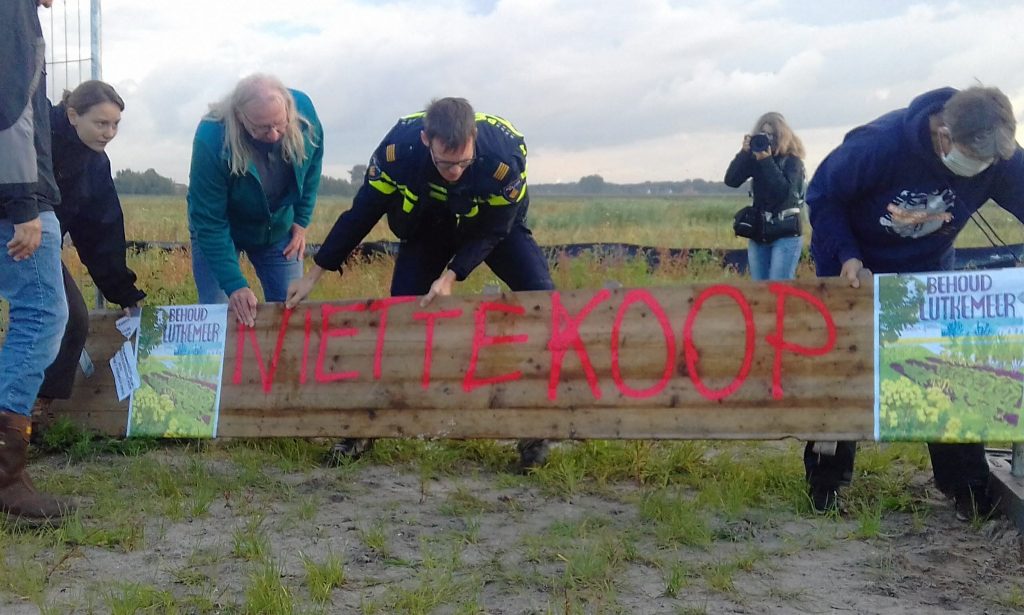
While food grown in the Lutkemeerpolder and the Boterbloem farm, if they were to remain untouched by SADC’s urban development plans, arguably could not sustain the whole city of Amsterdam with food, it could undoubtedly be a space for starting to build a more ecologically and socially resilient food system. But as long as land and food are conceived as commodities, food autonomy will remain a struggle as profitability will remain the main priority. And so, without the legal situation on their side, people and farmers will continue to be witnesses to their land being taken and covered in concrete as it is the case of the Lutkemeer and Boterbloem Farm. The struggle for food autonomy is ongoing and is inextricably tied to the issue of land and the lack of protection existing for valuable, alive, fertile soil. As a peri-urban farmer Caitlin Hachmyer from California puts it:
“We are all part of a complex, interwoven agricultural system whether or not we farm. When that is more broadly understood, the value of those directly tending our land and water systems, and the need for actual community-level investments, will become clearer. We need structural change that will put farmers—the caretakers of the land—at the center of community land ownership. Change that takes portions of farmable land off of the open market and redistributes it to those who build our food systems, the foundation of our lives. I dream of a day when I can look across the land and know that I can be there forever.” 9
If you are interested in reading more about Food Sovereignty/Autonomy and Food Security and exchange your thoughts with others on that subjects, there are still free spots available for our reading group on the 28th of October. To sign up, email alina@aseed.net, more information can be found here.
ASEED is a small grassroots collective run mostly by volunteers. We are proud to have the ability to put time and energy into researching topics around agriculture, climate and social justice! However, in order to keep up structures that support this work, along with organizing events and direct actions we need structural funding. During this COVID crisis it is especially hard to find the kind of funding that pays for our financial administration, small budget for coordination and fundraising, and rent on our office. A great way to help us stay structurally funded is to become a monthly contributor! You can do that by visiting the SUPPORT US page on our website. Want to get involved in other ways? Contact us at info@aseed.net.
References
1. UN. Revision of world urbanization projects. [link]
2. Norberg-Hodge, H., Goering, P., & Page, J. (2001). From the ground up: Rethinking industrial agriculture
3. Steel, C. (2013). Hungry city: How food shapes our lives
4. FAO. An Introduction to the Basics of Food Security [link]
5. Cerrada-Serra, P., Colombo, L., Ortiz-Miranda, D., & Grando, S. (2018). Access to agricultural land in peri-urban spaces: social mobilisation and institutional frameworks in Rome and Valencia
6. WUR. Discovering the value of the Lutkemeerpolder [link]
7. Nyéléni Forum 2007. Declaration of Nyéléni [link]
8. La Via Campesina. A Guide to Food Sovereignty [link]
9. Nyéléni Newsletter No. 35 [link]

